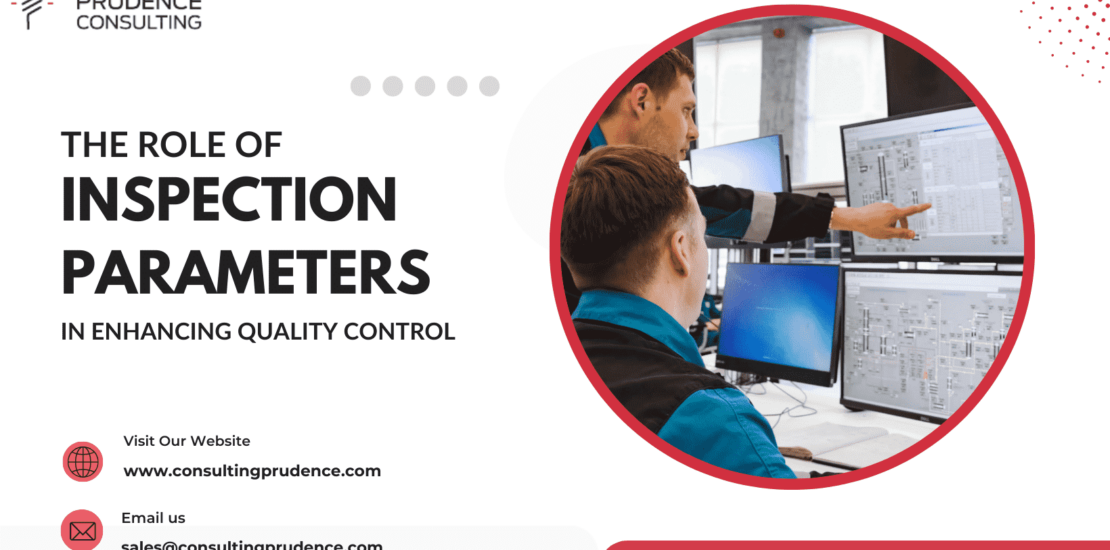The Role of Inspection Parameters in Enhancing Quality Control
-
September 28, 2023
- Posted by: piyush.gupta@prudencesoftech.in
- Category: Microsoft Dynamic 365 Business Central
No Comments

- September 28, 2023
- Posted by: piyush.gupta@prudencesoftech.in
- Category: Microsoft Dynamic 365 Business Central


Quality control plays a crucial role in ensuring that products and services meet the required standards and specifications. It is a process that encompasses all activities aimed at monitoring and improving the quality of products or services. In various industries, such as manufacturing, healthcare, and food production, the implementation of effective quality control measures is essential to guarantee customer satisfaction, maintain regulatory compliance, and minimize risks. By systematically inspecting and assessing products and processes, organizations can identify and rectify any deviations or defects, thus preventing potential issues before they reach the market.
Also Read : ERP for feed manufacturing company
Understanding Inspection Parameters and Their Significance
Inspection parameters are criteria used to assess product quality and compliance, defined by industry standards and customer needs. Key parameters include:
- Dimensional Accuracy: Crucial in precise industries like aerospace and automotive to ensure components meet specified dimensions for safety and functionality.
- Visual Appearance: Vital in consumer goods and packaging, focusing on factors like color consistency, surface finish, and overall aesthetics to maintain product quality and market appeal.
Key Inspection Parameters for Different Sectors
Every industry may have its own unique set of inspection parameters based on the specific requirements of the products or services they offer. Here are some key inspection parameters for different sectors:
- Manufacturing Industry
- Dimensional accuracy: Ensuring that all components meet the specified dimensions.
- Material properties: Verifying the physical and chemical properties of raw materials.
- Surface finish: Assessing the texture and smoothness of the product surface.
- Functionality: Testing the product’s performance and functionality under various conditions.
- Food Industry
- Microbiological safety: Ensuring that food products are free from harmful bacteria or pathogens.
- Sensory evaluation: Assessing the taste, texture, aroma, and appearance of food products.
- Nutritional content: Verifying the accuracy of nutritional information on food labels.
- Contamination control: Monitoring for any foreign objects or contaminants in the food.
- Healthcare Industry
- Sterilization: Ensuring that medical equipment and instruments are properly sterilized.
- Medication potency: Verifying the strength and effectiveness of medications.
- Patient safety protocols: Assessing compliance with safety guidelines and protocols.
- Diagnostic accuracy: Evaluating the accuracy of diagnostic tests and procedures.
Also Read : ERP for Development Sector and NGO
Conclusion:
In conclusion, quality control is essential in various industries to ensure customer satisfaction, regulatory compliance, and risk mitigation. Inspection parameters play a vital role in this process by defining specific criteria for evaluating product or service quality. By understanding and implementing effective inspection parameters, organizations can maintain high standards, prevent defects, and continuously improve their products and processes. As technology continues to advance, the future of inspection parameters in quality control holds immense potential for enhancing overall product quality and customer satisfaction.
To learn more about the role of inspection parameters in quality control and how they can benefit your industry, contact us today.


